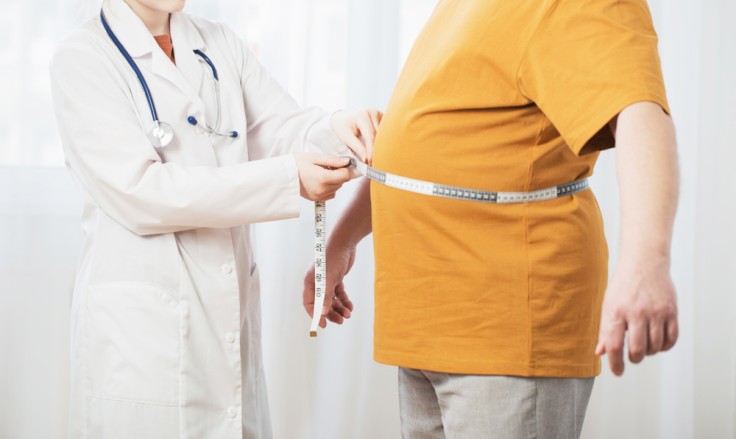Can Weight Loss Surgery Cure Diabetes?
Introduction
Weight loss surgery has garnered attention as a potential treatment for type 2 diabetes. Many patients ask whether diabetes and weight loss surgery can effectively cure diabetes. In fact, while surgery does not completely cure the disease, it can lead to significant improvements in blood sugar control and overall health. On the other hand, results vary widely among individuals. Consequently, a detailed understanding of how weight loss surgery influences diabetes is essential. This article discusses the role of weight loss surgery in managing diabetes. It explains the mechanisms behind its effects and the considerations to bear in mind when evaluating this treatment option.
The Relationship Between Weight Loss Surgery and Diabetes
Weight loss surgery is also known as bariatric surgery. It is primarily designed to induce significant weight loss. Subsequently, many patients experience remarkable changes in their metabolic state.
- Mechanism of Action:
- Primarily, the surgery reduces the size of the stomach and, in some cases, alters the digestive tract.
- As a result, caloric intake decreases and the body’s hormonal balance is affected, which can improve insulin sensitivity.
- Impact on Diabetes:
- In essence, these metabolic changes often lead to better blood sugar control.
- Moreover, studies have shown that a considerable number of patients with type 2 diabetes achieve remission or significant improvement post-surgery.
Furthermore, it is crucial to note that while many see marked improvements. Weight loss surgery is not a definitive cure for diabetes. Instead, it acts as a tool for managing the condition alongside lifestyle changes and medication.
What Are The Benefits For Diabetes?
Weight loss surgery offers several benefits that contribute to better management of type 2 diabetes.
- Enhanced Glycaemic Control:
- Notably, many patients experience reduced blood sugar levels soon after surgery.
- In addition, the need for diabetes medications often decreases significantly.
- Improved Insulin Sensitivity:
- On one hand, surgical procedures improve the body’s response to insulin.
- Conversely, patients with improved insulin sensitivity tend to enjoy better overall metabolic health.
- Long-Term Health Benefits:
- Likewise, sustained weight loss can lead to a reduction in other obesity-related complications.
- Moreover, these benefits extend beyond diabetes, enhancing cardiovascular health and quality of life.
By contrast, it is important to understand that individual outcomes may vary. Continuous monitoring is essential.
Considerations and Risks
Nevertheless, opting for weight loss surgery as a treatment for diabetes requires careful consideration.
- Patient Selection:
- Firstly, not all patients with diabetes are suitable candidates for bariatric surgery.
- Specifically, candidates must meet certain body mass index (BMI) criteria. They should have realistic expectations regarding outcomes.
- Surgical Risks:
- Furthermore, as with any surgical procedure, there are inherent risks. Including infections, nutritional deficiencies, and complications related to anaesthesia.
- In contrast, some patients may face challenges during the recovery phase. Which underscores the importance of a thorough pre-operative evaluation.
- Long-Term Commitment:
- Moreover, success depends heavily on the patient’s commitment to lifestyle changes post-surgery.
- For example, adherence to dietary guidelines and regular exercise is crucial to maintain the benefits achieved.
It is not a solution even if it can offer dramatic improvements in diabetes management. Instead, it should be viewed as part of a comprehensive treatment strategy.

Integrating Weight Loss Surgery with Comprehensive Diabetes Management
Incorporating weight loss surgery into your diabetes management plan involves more than undergoing a procedure.
- Post-Surgery Follow-Up:
- Regular follow-ups with your healthcare team are indispensable to monitor blood sugar levels and adjust medications accordingly.
- Similarly, nutritional counselling is essential. It ensures that you receive balanced meals that support your recovery and long-term health.
- Lifestyle Modifications:
- Furthermore, engaging in regular physical activity and stress management techniques significantly bolsters the benefits of the surgery.
- Equally, education on healthy eating habits and portion control plays a pivotal role. It helps sustain weight loss and diabetes control.
Overall, when diabetes and weight loss surgery are combined with a robust lifestyle programme. Patients often achieve the most favourable outcomes.
Conclusion
In summary, weight loss surgery is a powerful intervention that can markedly improve diabetes management. Although, it does not completely cure the condition. Initially, the surgery induces significant metabolic changes. These enhance glycaemic control and insulin sensitivity. At the same time, careful patient selection, awareness of surgical risks, and a firm commitment to long-term lifestyle modifications are essential for success. Ultimately, a comprehensive approach is key to sustainable health improvements. It should integrate diabetes and weight loss surgery with ongoing support and education.
For more information on weight loss surgery and to book a consultation visit the ACIBADEM Beauty Center Obesity Surgery webpage.





